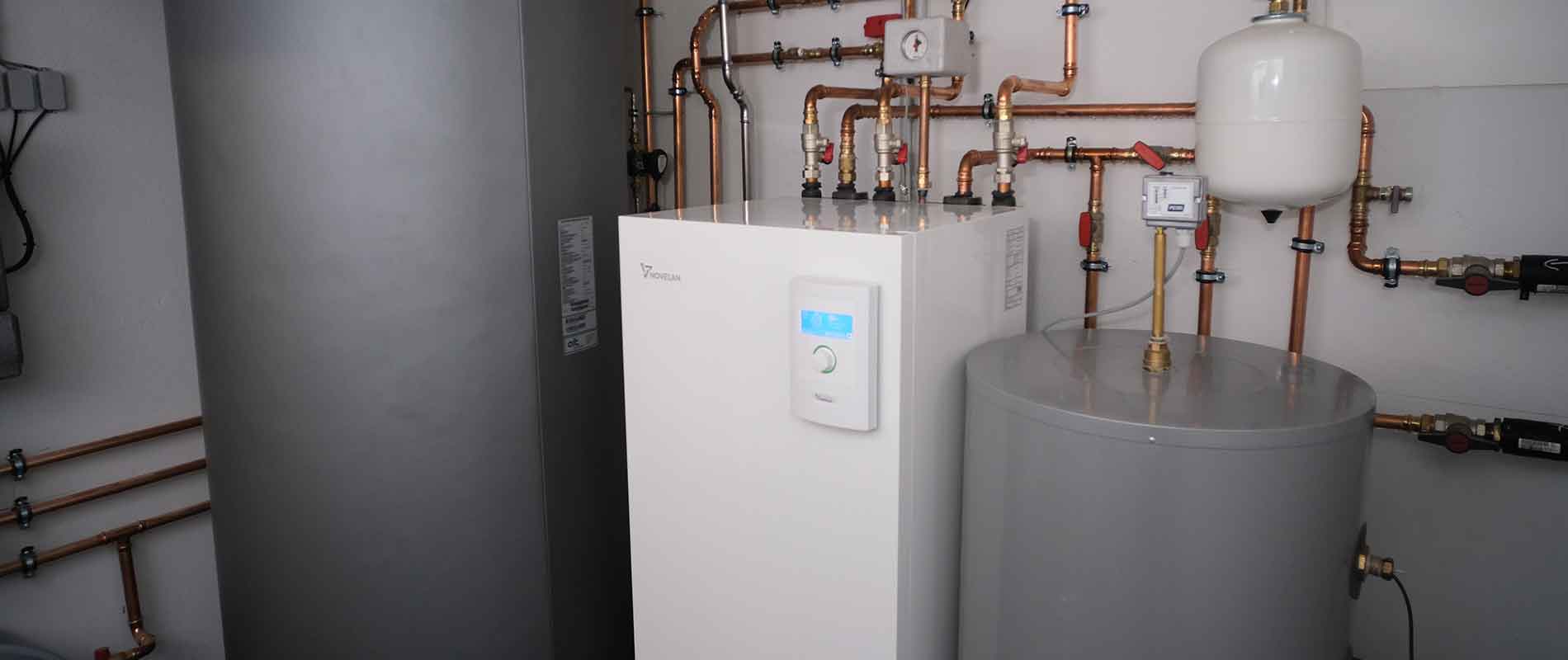Lower Franconian energy supplier optimizes energy balance with heat pump
Simply effective. The Lower Franconian central utility in Lülsfeld uses the heat produced by its data center to heat its offices and workshop. This saves a lot of energy and significantly improves the CO2 balance. Optimum energy output is ensured by a Professional brine/water heat pump.
The principle
Recirculating air cooling units extract waste heat in the data center. The return flow of the cooling brine system flows into a 1000-liter buffer tank. This serves as a free energy source for NOVELAN's brine/water heat pump. At a heat source temperature of 22 °C, the heat pump has an output of 50 kW.
The heat generated flows into a manifold that supplies the heated ceilings in the workshop and offices – a total of around 500 square meters of heated floor space. With a heat source temperature of 22 °C and the flow temperature of 35 °C, the system achieves an almost sensational COP of 7.0.
To increase the unit's running time and prevent the chiller from cycling, Alexander Wolf's team divided the system into a primary and a secondary cooling circuit. A 2,000-liter buffer tank is integrated into the second circuit.
Simple – and cost-effective
The use of waste heat with integration of the NOVELAN heat pump is significantly less expensive than the standard heating operation of the central utility by natural gas condensing boiler. The annual coefficient of performance at a maximum system temperature of 55/45 °C is an impressive 4.48. Calculations have shown a saving of more than 100,000 kilowatt hours of natural gas per year. This saves 25 tons of CO2 annually when using natural power.
Decentralized heat supply
The system generates heat for heating and domestic hot water. For this purpose, each of these units from NOVELAN has its own integrated storage tank with a capacity of 180 liters for the domestic hot water. For the heating systems, there is an additional so-called heat source buffer storage tank with a capacity of 500 liters per half of the house in the underground garage. This storage tank temporarily stores the geothermal energy that enters the house via the geothermal probes.
One advantage of this decentralized heating solution is that each apartment is responsible for its own energy consumption for heating and domestic hot water. This eliminates the need for central billing – and those who rent out can set correspondingly low cold rents.
In addition, the housing developer – and ultimately the purchaser – saves effort and costs due to the fact that decentralized domestic water preparation means that there are no obligations regarding the drinking water regulations.


